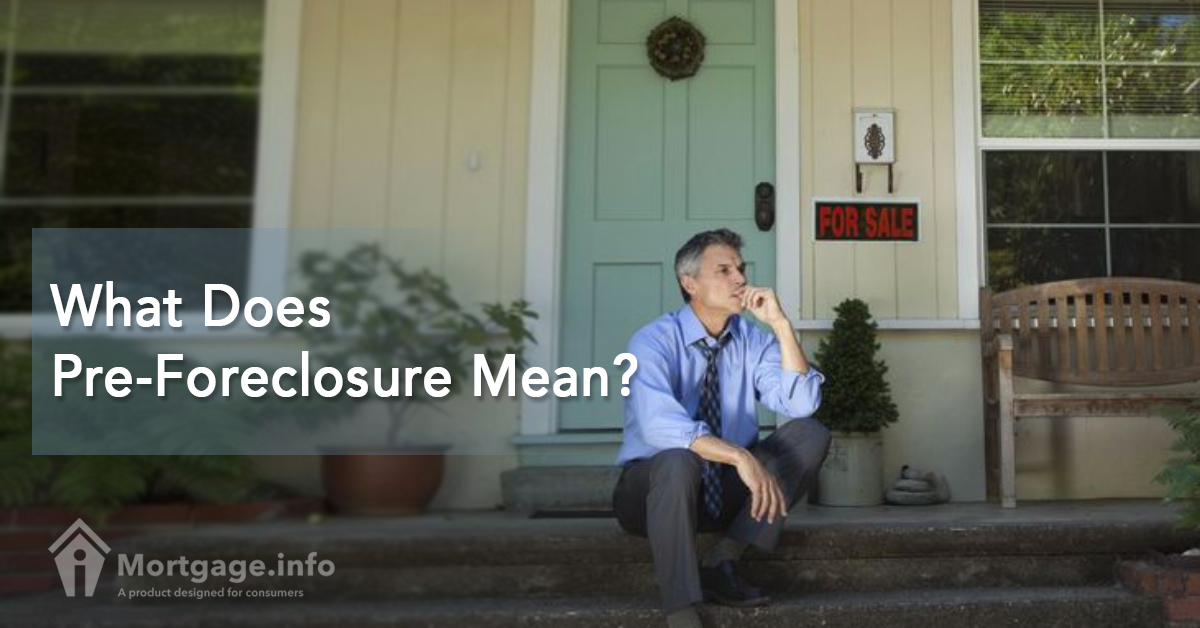There are many terms that get thrown around in the mortgage industry. Pre-foreclosure, short sale, and foreclosure are often the most confused. What are the differences? When do you need to worry? Here we will discuss what you can expect before the home hits actual foreclosure.
Pre-Foreclosure Starts the Process
Pre-foreclosure is like a warning. It occurs once you are more than 90 days late on your mortgage payment. Your lender will likely send you a letter stating you are in the beginning stages of foreclosure with the words like “foreclosures is imminent” often showing up. You have two options while you are in this stage: bring your mortgage current or sell your home. If you decide to sell your home, you must do so quickly. Once the status changes to “foreclosure,” you are no longer in charge. The lender then takes ownership of your home and you must leave.
You Can Live in the Home
Being in pre-foreclosure does not mean you must leave your home. You can consider it a warning that this may happen, though. You must act quickly when you receive notice that you are in this stage. If the lender pushes forward and forces you into foreclosure, you are no longer in control. You also have nowhere to live. The best thing you can do is stay in contact with your lender. Ask them what options you have. Sometimes they can work out a deal with you so you can repay the mortgage. They make it so the payments are affordable but still give the bank their money back in a timely manner. In other cases, they may work out a short sale deal with you. This means they give you a certain amount of time to put the home on the market and sell it for less than the loan amount. This helps you have a place to stay while you figure things out.
The Damage to Your Credit
Many people worry about their credit. There is nothing they can do about not being able to afford their mortgage, but the last thing they want is bad credit. Staying in the pre-foreclosure state will not affect your credit too much. Of course, the late payments already dinged your credit, but you will not lose your home in foreclosure if you act fast. This can help prevent further damage to your credit score. Make your decision fast regarding what you will do next. Do you want to work out a deal with the lender or sell the home? Whatever you decide, communicate this with the lender to avoid them from moving forward with foreclosure proceedings.
If your loan were to go into foreclosure, it reports on your credit report. It could affect you for the next 7 to 10 years. This does not mean you cannot secure financing for that long, though. Many mortgage programs have shorter waiting periods. However, the foreclosure will show up on your credit history, marring your credibility for the foreseeable future.
How Long Do you Have?
Do not panic the second you receive a pre-foreclosure notice. You know it is coming if you have not made a mortgage payment in the last 3 months. However, you have some time to figure things out. Lenders typically wait between 3 and 10 months before moving forward. Of course, this depends on how well you communicate with them. If you do not respond to the letter and rather ignore it, they may move faster. On the other hand, if you call the lender and discuss your options, they may give you more time. If you show an interest in working things out so you can keep your home, they will go over your options with you. If you prefer to sell it, they will work on negotiations as far as selling it in a short sale. Remember the lender has the final say in the agreed upon sales price. You cannot sign a sales contract until the lender agrees to the sales price since it is likely less than you owe and you likely owe more than the value of the home.
While you never want to hear the words pre-foreclosure, you still have options when you are in the phase. Do not ignore the letters the bank sends, but rather put a plan into action. Figure out the best way to move forward, whether it is a payment arrangement with the bank or selling your home. Either way, acting now will save your credit from too much damage and give you time to figure out where you will live.

